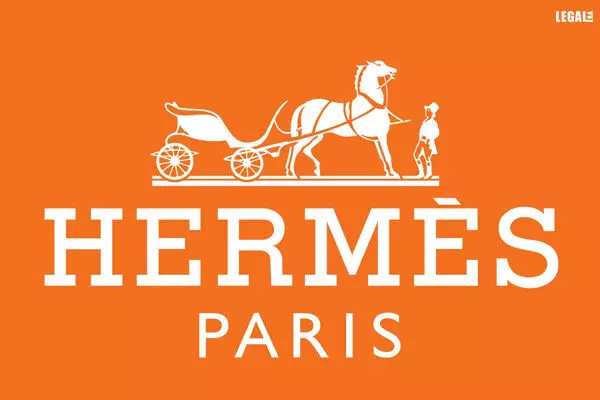- Home
- News
- Articles+
- Aerospace
- Artificial Intelligence
- Agriculture
- Alternate Dispute Resolution
- Arbitration & Mediation
- Banking and Finance
- Bankruptcy
- Book Review
- Bribery & Corruption
- Commercial Litigation
- Competition Law
- Conference Reports
- Consumer Products
- Contract
- Corporate Governance
- Corporate Law
- Covid-19
- Cryptocurrency
- Cybersecurity
- Data Protection
- Defence
- Digital Economy
- E-commerce
- Employment Law
- Energy and Natural Resources
- Entertainment and Sports Law
- Environmental Law
- Environmental, Social, and Governance
- Foreign Direct Investment
- Food and Beverage
- Gaming
- Health Care
- IBC Diaries
- In Focus
- Inclusion & Diversity
- Insurance Law
- Intellectual Property
- International Law
- IP & Tech Era
- Know the Law
- Labour Laws
- Law & Policy and Regulation
- Litigation
- Litigation Funding
- Manufacturing
- Mergers & Acquisitions
- NFTs
- Privacy
- Private Equity
- Project Finance
- Real Estate
- Risk and Compliance
- Student Corner
- Take On Board
- Tax
- Technology Media and Telecom
- Tributes
- Viewpoint
- Zoom In
- Law Firms
- In-House
- Rankings
- E-Magazine
- Legal Era TV
- Events
- Middle East
- Africa
- News
- Articles
- Aerospace
- Artificial Intelligence
- Agriculture
- Alternate Dispute Resolution
- Arbitration & Mediation
- Banking and Finance
- Bankruptcy
- Book Review
- Bribery & Corruption
- Commercial Litigation
- Competition Law
- Conference Reports
- Consumer Products
- Contract
- Corporate Governance
- Corporate Law
- Covid-19
- Cryptocurrency
- Cybersecurity
- Data Protection
- Defence
- Digital Economy
- E-commerce
- Employment Law
- Energy and Natural Resources
- Entertainment and Sports Law
- Environmental Law
- Environmental, Social, and Governance
- Foreign Direct Investment
- Food and Beverage
- Gaming
- Health Care
- IBC Diaries
- In Focus
- Inclusion & Diversity
- Insurance Law
- Intellectual Property
- International Law
- IP & Tech Era
- Know the Law
- Labour Laws
- Law & Policy and Regulation
- Litigation
- Litigation Funding
- Manufacturing
- Mergers & Acquisitions
- NFTs
- Privacy
- Private Equity
- Project Finance
- Real Estate
- Risk and Compliance
- Student Corner
- Take On Board
- Tax
- Technology Media and Telecom
- Tributes
- Viewpoint
- Zoom In
- Law Firms
- In-House
- Rankings
- E-Magazine
- Legal Era TV
- Events
- Middle East
- Africa
The Hermès Lawsuit: Paving Way for the Future of NFTs and Trademark.

The Hermès Lawsuit: Paving Way for the Future of NFTs and Trademark.
The District Court of New York is currently adjudicating a first-of-its-kind trademark infringement case involving non-fungible tokens (NFT).
Mr. Mason Rothschild (Defendant), a digital user is alleged to have infringed and misappropriated the trademark of the famous luxury brand Hermès, best known for its Birkin Bags. Defendant set his business of selling these Birkin Bags under the name of "Metabirkin" which is an image of blurry faux-fur-covered Birkin handbag across all NFT platforms.
Gaining popularity, the faux MetaBirkins sold over 230 Ethereum (equivalent to one million dollars).
The idea was to swap the real-life Hermès handbag rights with virtual Metabirkin rights by selling the Birkin handbags as NFTs.
The original Hermès handbags are sold between thousands to millions of dollars. It is further noted that the Hermès bags are not yet minted or originally sold as NFTs.
In the present motion to dismiss the case, the Court noted that Metabirkin was introduced to mislead the public into thinking it was associated with the original brand, which created a factual dispute which cannot be dismissed at the pleading stage.
Defendant contended by stating that he is an artist and his project, Metabirkin, was artistic creativity, hence the same cannot fall under the purview of infringement. The Court responded with the observation that "if the commercial aspects of a work intertwined with artistic content, the trademark-using speech must be treated as noncommercial."
Hermès sued the defendant for "trademark infringement, trademark dilution, and cybersquatting" under the Lanham Act and New York statutes.



